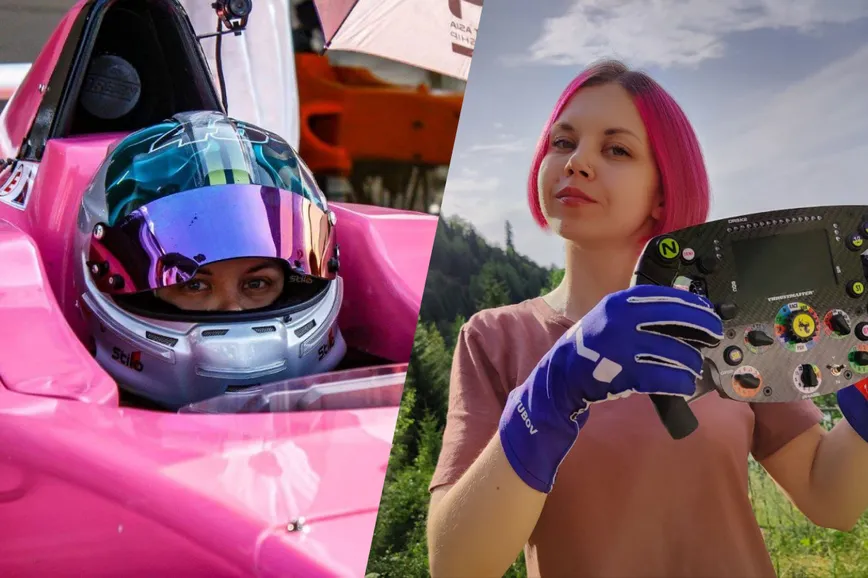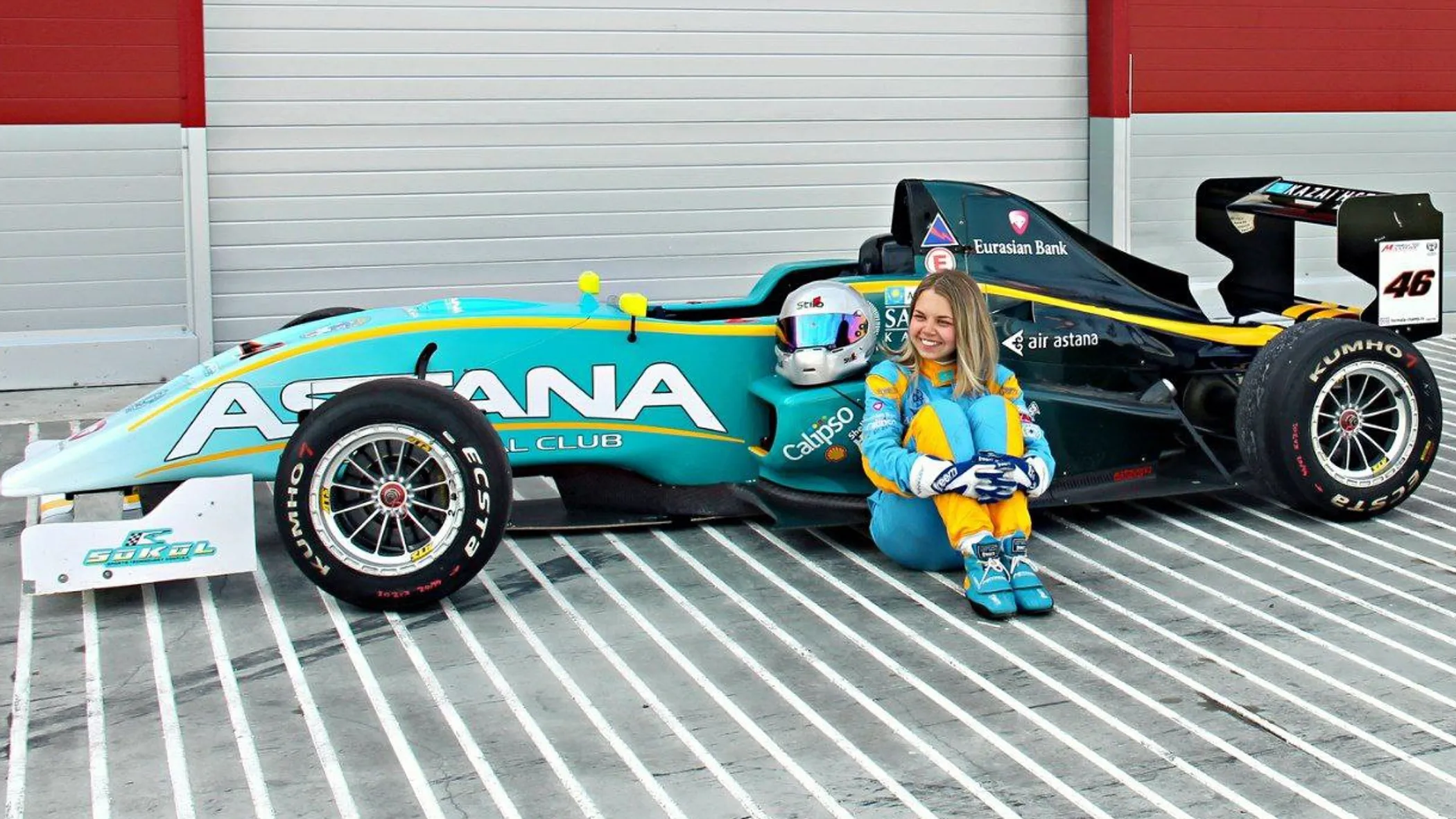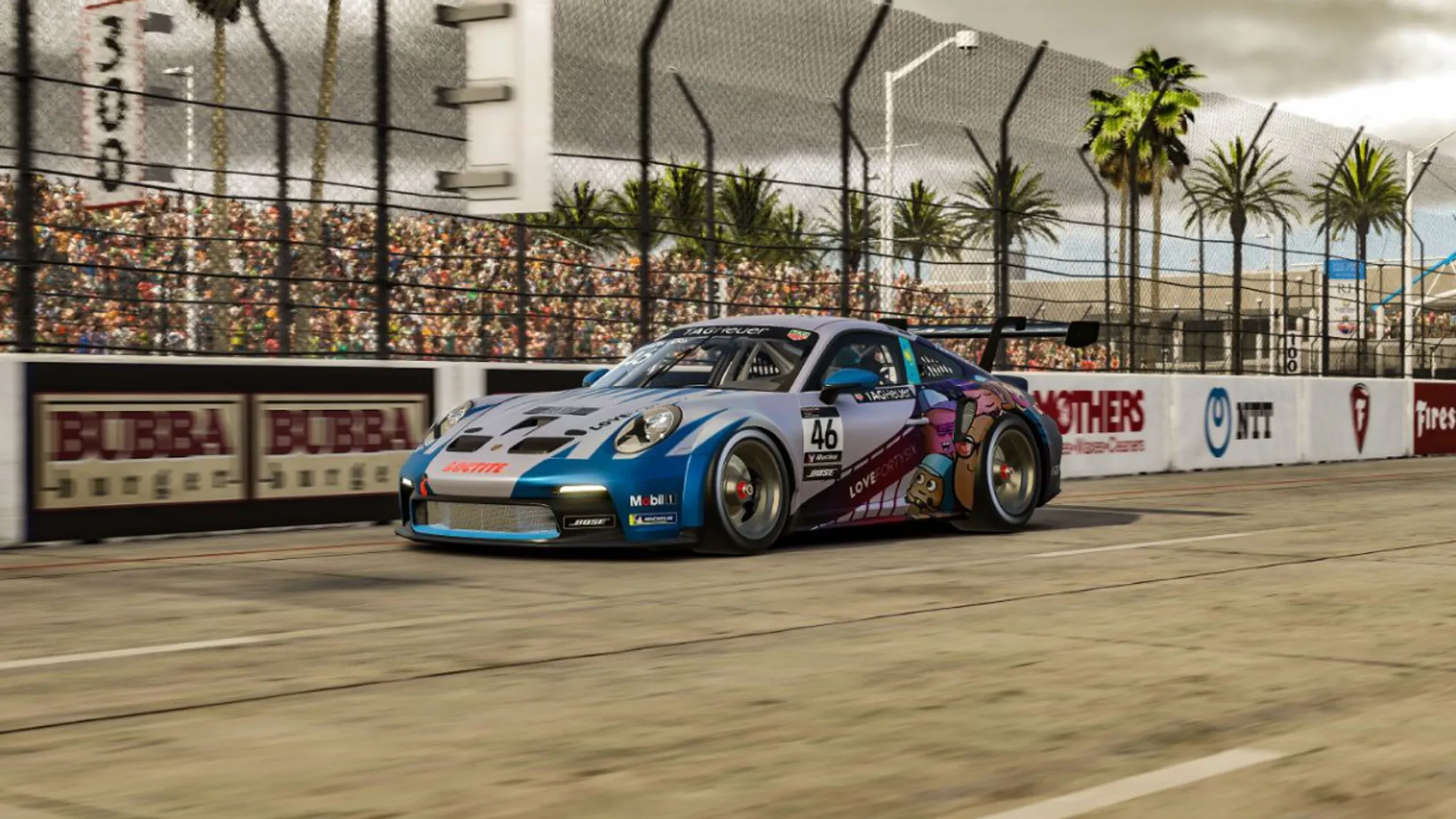Focusing on testing her skills on the track from the age of nine, Lyubov Ozeretskovskaya started her journey when her father took her to a karting center in Almaty. Since then, she has been dedicated to a life intertwined with high-speed and rapid decision-making. In the 2010s, she tried her hand at Formula racing, competing for the Astana Motorsports team and being the only Kazakh pilot in world-class events for Formula 4.
Eventually, she had to walk away from the physical cockpit, only to bring it back to the racing world, this time seated in a gaming chair. Lyubov transitioned to racing simulators, with iRacing, a simulator that goes high and low to mimic real-life driving, becoming her primary focus. Now, a successful Twitch streamer endorsed by several brands, Lyubov has become a guide for many to the world of sim racing.
QazMonitor reached out to Luybov and talked about her transition from real-life racing to driving on virtual laps, and what it is like to compete in the ever-growing and highly competitive esports scene.
What prompted your shift to sim racing?
I had been working for companies connected to sim racing since 2017, and at some point, I met there my husband and he exposed me to iRacing. It also happened that Astana Motorsports ended its racing program and I was all by myself without any funding.
Sim racing became a way for me to not only continue my career and self-realization as a content creator but also as a racer.
Also, there was a big push in 2020, everyone was in quarantine. That's when I began streaming on Twitch and the channel really started to take off. At first, I had like fifteen viewers, and now it hovers around two hundred. This is a sizeable number, considering that top streamers have about a thousand viewers if there’s a big event; otherwise, they have about six hundred people.
What do you find similar and different between motorsports and sim racing?
Well, what drew me to both was competition. The fact that you can develop yourself as a pilot and face your everyday fears. So, with sim racing everything is the same for me, plus—unlike in IRL racing—there is just tremendous competition.
As in, to reach that level of competition IRL, you have to enter some tough championships like those in the GT3 group or Formula. But in sim racing, you can find that kind of competition every night.
And all of this happens right in my studio at home. I can join daily races whenever I want, much like in, say, CS:GO. Sim racing has offline events but online comes first, and we’re talking about the biggest championship, it’s Porsche Esports Supercup. It boasts a prize pool of $200,000.
What sets a pro apart from just an experienced racer?
It all comes down to how you position your car, handle critical situations, craft your overtakes, and so on. If it’s an endurance race, we aim to conserve fuel, hence avoiding a pit stop towards the end. We drive steadily, avoiding crashes and big risks, ensuring the car makes it to the finish line. All this works in life and applies to sim racing too. And if it's a shorter race, then, we give it our best. We don't save tires and the same goes for fuel.
In this sense, there truly aren't significant disparities between motorsports and sim racing. Especially now, gaming accessories can provide [physical] feedback to the steering wheel, mimicking resistance, and pedals can be adjusted to be as tight or loose as desired. As a result, the margin between simulation and racing is quite narrow.
There are instances where sim racing guys step onto the actual track and show decent performance. It's not like in shooters, where you have a mouse and keyboard and it will be difficult to adjust to real weapons. Here, even the fine motor skills translate directly, making such transitions smooth.
How was your experience transitioning from a Formula cabin to a gamer chair?
It was the same for me. The mistakes I made in real life also made it to sim racing. Even during my Formula 4 competition in Sepang [QM. — 2019 Formula 4 South East Asia Championship in Sepang], I would practice on the simulator, attempting to improve certain corners. There wasn't much time for practice, but I did well on the simulator and it helped me a lot to accelerate on the actual track. And, just to say, in Formula 3 or 4 events, simulator sessions are mandatory, and you won't even be allowed on the track without spending an hour on the simulator.
What about the most memorable achievement in both motorsports and sim racing?
In motorsports, it was fourth place in Formula Masters Russia and sixth in the Asia Cup Series [both in 2015], and of course, I clinched our Karting Championship four times. So, that was cool. As for sim racing, it was third place, which I snagged right on the very last lap in the 24 Hours of Daytona in GT3. It was incredible to compete in the official Porsche championship and it marked my first year competing at Porsche All-Stars. It was just great; the whole team on Discord was cheering and screaming their ears off!
How has the esports scene evolved in recent years?
Sim racing gained momentum starting in 2020, because of the influx of IRL racers who joined the community, so we had increased media coverage. Though, a lot of [racing] simulators have been around for a while, and it's just now that people have started to take an interest.
When I joined iRacing, there were around 150,000 active users, and that number has risen to 200,000. Year after year, there are more people online, with an increasing number of cool competitions. Take the oval championship, the eNASCAR Coca-Cola Series; it is now in its third or fourth year. Or the Gran Turismo championships, which have been held for a long time now. There’s also Renn Sport, a new simulator, with an offline championship and a million-dollar prize pool.
So, yeah, sim racing is pretty much growing and evolving.




